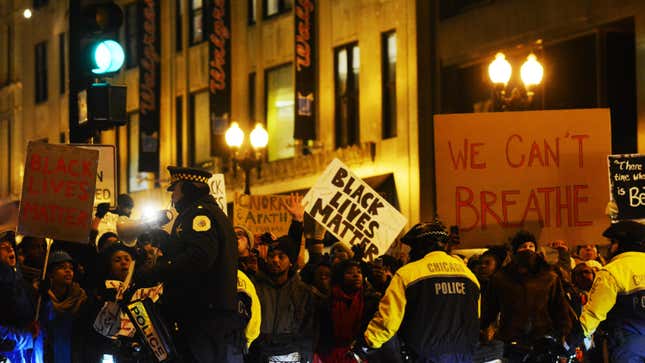
There is a call for anyone who is upset about corporations bowing to the whims of the president to boycott them on February 28th. This is not a bad idea because boycotts work. Don’t believe me, let’s look at history.
Black People and Boycotts:
In 1955, Rosa Parks said ‘nah’ when a bus driver demanded that she give her seat to a white man in Montgomery, Alabama. That sparked a 13-month boycott of the bus system that led to the dismantling of the city’s segregationist policies and thrust Dr. Martin Luther King, Jr. (The Kang) into the international spotlight. That’s the one you know, but there have been others. There is the Delano Grape Strike and Boycott led by César Chávez that resulted in the creation of the United Farm Workers (UFW) union. Then there is the boycott of South Africa in the 80s and 90s because of its system of racial segregation known as apartheid.
The Key Ingredient for An Effective Boycott:
What one needs to effectively lead a boycott is mass outrage, organization, and resolve once the boycott has begun. In the 1960s, church leaders were instrumental to the success of boycotts against segregation because they had the gravitas needed to make Black folks listen to them, but also, more importantly, they were able to use the churches where they served as meeting places for the people who would do the boycotting. But things have changed. No longer do people who want to organize boycotts need churches to plan their protests. They now have the internet.
When the Black Lives Matter movement gained steam in the early 2010s, it did so because of the internet. Videos, hashtags and the names of Black folks who were murdered by the police were shared on platforms like Twitter and Facebook. That resulted in marches in towns as small as Farmington, Missouri and cities as big as Seattle, Washington. Activists saw that all one had to do was make a compelling case on social media, and they could get the attention needed to stage effective protests.
Boycotts are Now Led By Social Media Not Churches:
Boycotts are no longer organized in churches. You don’t need charismatic pastors like MLK or Ralph Abernathy to lead these things. When Alicia Garza, Patrisse Cullors, and Opal Tometi inadvertently started the BLM movement, they were not culturally significant. They were just folks who loved Black people and were concerned about what was happening to us in the streets.
Fast-forward to 2025. As soon as Trump took office, he took aim at Diversity Equity and Inclusion initiatives in the Federal Government. Following his lead, corporations like McDonalds and Walmart started rolling back DEI initiatives in their stores. Incensed, Black folks started calling for boycotts of places like Walmart and others. However, there was no real organization to those calls. Now, it seems that white folks are on board and there is a push for a February 28 boycott of places like Amazon, Walmart and any other corporation that is following the 47th president’s lead.
This started with us. So, as always, Black folks led the way. We may not be the ones who came up the idea to boycott on February 28th, but that does make it a bad idea. Especially since we were calling for it anyway, but it cannot stop there. The people calling for this boycott are saying that this I only the beginning. That it will eventually expand from a one-day boycott to a larger one. That is necessary. For any boycott to work, there must be sustained pressure on any institution that is being targeted.

